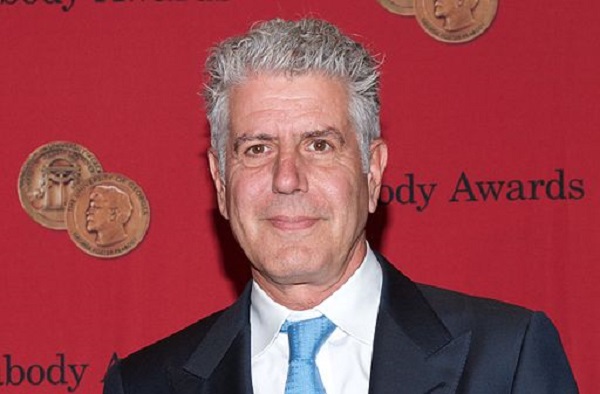I was a huge fan of Anthony Bourdain’s Parts Unknown, which aired on CNN. It was a fascinating mix of food travelogue to places ranging from West Virginia to Antarctica, liberal political activism, self revelation, and Bourdain’s personal libertine excesses — CNN allowed him to smoke pot on camera, for example, a wrong thing to do — all spiced with his caustic humor. I disagreed with nearly everything Bourdain said beyond recipes, but I really looked forward to his programs.
But this season, I noticed the show was losing air. Bourdain seemed listless, like he was just going through the motions. The sizzle was gone. Last night, I watched his Hong Kong show, and it was almost boring, without joy.
And now, he has hanged himself in Paris during one of his shoots. Memory Eternal!
Bourdain’s self-destruction follows fast on the heels of designer Kate Spade. These celebrity deaths — people who have reached the pinnacle — highlight a terrible and growing suicide crisis in this country. From the New York Times story:
Suicide in the United States has surged to the highest levels in nearly 30 years, a federal data analysis has found, with increases in every age group except older adults. The rise was particularly steep for women. It was also substantial among middle-aged Americans, sending a signal of deep anguish from a group whose suicide rates had been stable or falling since the 1950s. . . .
The increases were so widespread that they lifted the nation’s suicide rate to 13 per 100,000 people, the highest since 1986. The rate rose by 2 percent a year starting in 2006, double the annual rise in the earlier period of the study. In all, 42,773 people died from suicide in 2014, compared with 29,199 in 1999.
What could be causing this? I have my own theories: disintegrating societal cohesion, the loss of faith and the concomitant secularization of the culture — which can offer few existential comforts to the despairing — the increase in drug addiction, family dysfunction, the problems our veterans experience, and the prominence of societal nihilism.
Click here to sign up for pro-life news alerts from LifeNews.com
At the same time, suicide is also promoted by euthanasia activists and the media as an acceptable answer to the problems associated with serious illness, disability — in some quarters, even mental illness. Good grief, Brittany Maynard was transformed into an international A-list celebrity because she announced her plan to kill herself. It strikes me that suicidal people are not going to think, “Oh, that doesn’t apply to me,” if their suffering is not illness or disability related.
Meanwhile, suicide-prevention efforts receive far less attention. Sometimes, those efforts are almost invisible.
Going forward, all of us need to pay greater attention to those in our families and social orbits who may be suicidal. The National Suicide Prevention Lifeline has published an important, embossed “Community Card” that offers six “Questions that Can Save a Life” to help us prevent suicides. I urge all readers to take a look.
If you or someone you know is suicidal, the National Suicide Prevention Lifeline can be reached at 1-800-273-TALK.
LifeNews.com Note: Wesley J. Smith, J.D., is a special consultant to the Center for Bioethics and Culture and a bioethics attorney who blogs at Human Exeptionalism.








